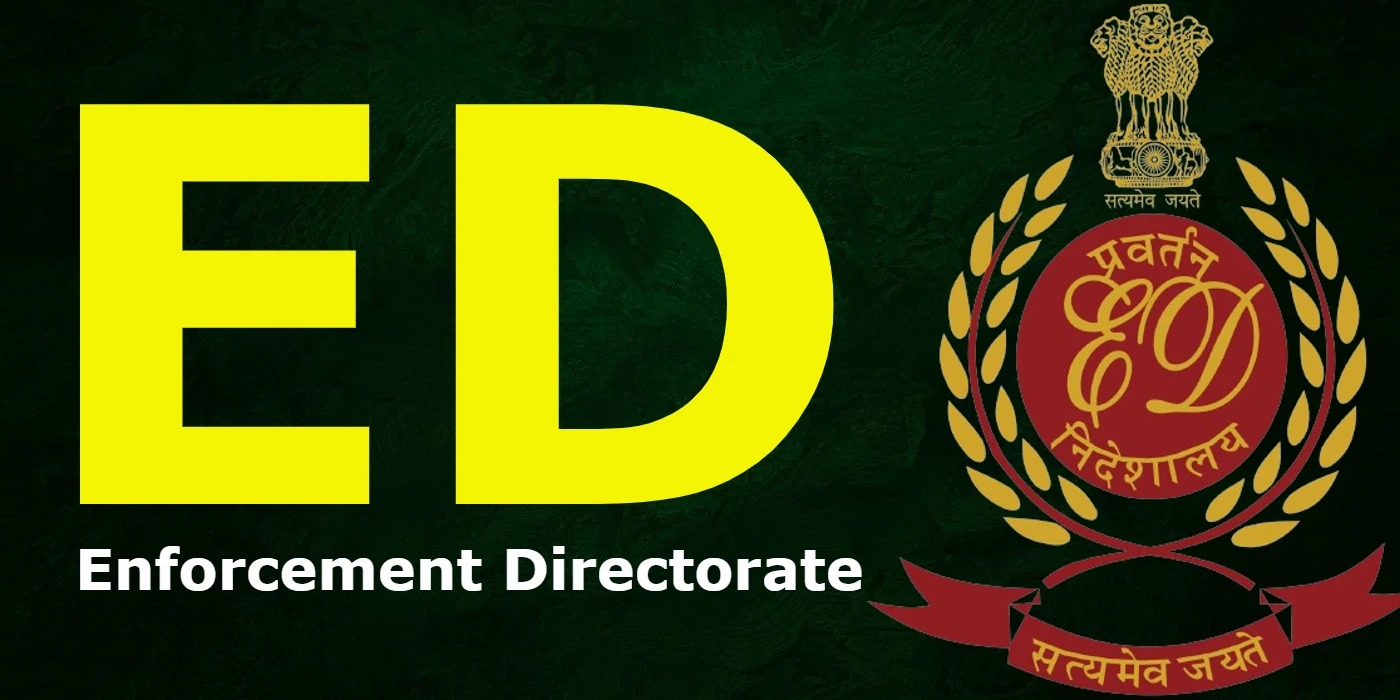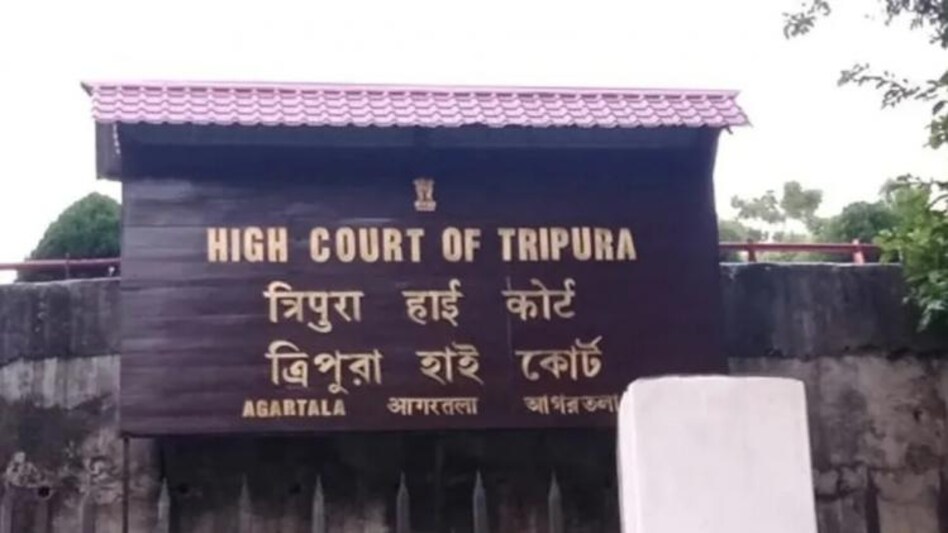Joymalya Bagchi, J.@mdashThe appeal is directed against the judgment and order dated 21/22nd January, 2004 passed by Learned Additional Sessions Judge, Fast Track, 1st Court, Raiganj, Uttar Dinajpur in Sessions Case No. 56/2002 (in Sessions Trial No. 12/2003) convicting the appellant for commission of offence punishable u/s 498A and section 306 of the Indian Penal Code and sentencing him to suffer rigorous imprisonment for seven years and pay a fine of Rs. 2,000/- (Rupees Two Thousand), in default suffer simple imprisonment for six months for the offence punishable u/s 306 of the Indian Penal Code, no separate sentence was imposed in respect of the offence punishable u/s 498A of the Indian Penal Code.
2. The prosecution case, as alleged, against the appellant is to the effect that deceased Jhuma Pal was married to the appellant according to the Hindu Rites and Customs on 4th December, 1997. After marriage, Jhuma went to her matrimonial home at Village Mahasunda, Durgapur and resided with the appellant as husband and wife. Jhuma was subjected to physical assault by the appellant in an inebriated state. After some days, the appellant and her mother Madhabi Lata Pal sent her to her parental place by assaulting her on demands of dowry. Jhuma disclosed such facts of torture by the accused persons at her parental home and informed them that the accused persons would not allow her to stay at the matrimonial home until and unless she brought money and other articles from her parental house. Few days prior to the incident, the accused persons assaulted Jhuma and sent her to her father''s house. In order to placate them, Samir Chowdhury, elder brother of Jhuma, went to her matrimonial home and gave some money and a ceiling fan. On the previous day of the occurrence, Madhabi Lata, the mother-in-law of Jhuma, came to the parental house of Jhuma to spend the night. On the next morning, at about 10.30 a.m. two friends of the appellant came to the house of Samir Chowdhury and informed him that the appellant had fractured her leg. Samir and mother-in-law of Jhuma came to her matrimonial house and found that Jhuma was lying dead at the matrimonial home. She had committed suicide by hanging due to torture of the accused persons.
3. Samir Chowdhury lodged written complaint with Itahar Police Station resulting in the registration of Itahar P.S. Case No. 77/98 dated 06.04.1998 u/s 498A and section 306 of the Indian Penal Code. It is pertinent to mention here that prior to the registration of the aforesaid criminal case, on the intimation of one N. Das, the maternal uncle of the appellant, UD case No. 7/98 dated 06.04.1998 was registered for enquiry into the suicidal death of Jhuma. In conclusion of investigation of the case, charge sheet was filed against the appellant and Madhabi Lata Pal, mother-in-law of the deceased, u/s 498A and section 306 of the Indian Penal Code. The case, being a sessions triable one, was committed to the Court of Sessions, Uttar Dinajpur and transferred to the Court of learned Additional Sessions Judge, Fast Track, First Court, Raigunj, Uttar Dinajpur for trial and disposal.
4. Charge was framed under sections 498A and 306 of the Indian Penal Code. The defence of the appellant was innocence and false implication. It was suggested that as de facto complainant Samir Chowdhury, the P.W. 1 had quarrelled with the victim on the day prior to the incident in an intoxicated condition. Hence, the victim had committed suicide.
5. The prosecution examined as many as 17 witnesses and exhibited a number of documents. The defence however did not examine any witness of its own. In conclusion of trial, learned Judge by impugned judgment and order dated 21/22nd January, 2004 convicted the appellant for commission of offence punishable under sections 498A and 306 of the Indian Penal Code and sentenced him to suffer rigorous imprisonment for seven years and fine of Rs. 2,000/- (Rupees Two Thousand), in default suffer simple imprisonment for six months for the offence punishable u/s 306 of the Indian Penal Code, no separate sentence was imposed in respect of the offence punishable u/s 498A of the Indian Penal Code. By the self-same judgment and order, the trial Court acquitted the co-accused Madhabi Lata from the charges levelled against her.
6. Mr. Purakayastha as amicus curiae submitted that the first information report is a belated one. He further submitted that the evidence of the prosecution witnesses suffered from embellishments and contradictions. The case of demand of dowry was introduced for the first time in Court. It was finally submitted that the prosecution case of torture and ill treatment was improbabilised by the conduct of Madhabi Lata, mother-in-law of the victim, spending night at the parental home of Jhuma, the day before her death.
7. Mr. Banerjee, learned Additional Public Prosecutor submitted that the prosecution witnesses, particularly P.W. 1 Samir Chowdhury, P.W. 2 Kalpana Chowdhury, his wife and P.W. 13 Manju Saha, next door neighbour of the parental home of Jhuma, had established the prosecution case of mental and physical torture upon Jhuma by the appellant resulting in her commission of suicide within a couple of months of her marriage. He accordingly submitted that the conviction and sentence of the appellant was totally justified and did not call for any interference.
8. P.W. 1 Samir Chowdhury is the de facto complainant and elder brother of Jhuma. P.W. 2 Kalpana Chowdhury is his wife. P.W. 3, P.W. 4 and P.W. 13 are residing near the parental home of Jhuma. P.W. 5 Nikhil Kr. Das is the maternal uncle of the appellant and had lodged diary resulting in the registration of U.D. case. P.W. 6, 7 and 8 are residents near the matrimonial home of Jhuma. P.W. 9 is a police personnel who seized the marriage invitation card. P.W. 10 took the dead body of Jhuma for post mortem examination. P.W. 11 is the police personnel who is a witness to the seizure of wearing apparel of the victim. P.W. 12 is the Investigating Officer of the U.D. case registered over the death of the victim. P.W. 14 is the scribe of the first information report. P.W. 15 is the autopsy surgeon who held post mortem over the dead body of the victim and opined that death was due to antemortem hanging. P.W. 16 is a police personnel who proved the U.D. case register. P.W. 17 is the Investigating Officer of the case.
9. The prosecution case of torture and ill treatment upon the victim is proved by the evidence of P.W. 1, 2 and 13. P.W. 1 in his deposition has stated that victim complained that the appellant used to assault her after taking liquor, the victim also complained that the appellant used to put pressure upon her to bring money and articles from her paternal house; as P.W. 1 could not comply with such demands, she was sent back to her parental home, P.W. 1 tried to placate the appellant by giving Rs. 1000/- and a ceiling fan; in spite of that, the appellant continued torture upon Jhuma; in cross-examination, P.W. 1 stated that the appellant came in a drunken condition to their house and misbehaved; he also proved the first information report lodged by him. P.W. 2 Kalpana Chowdhury is the wife of P.W. 1. She has corroborated evidence of P.W. 1 with regard to torture upon the victim by the appellant in an inebriated condition. She also stated that the appellant used to make various demands and her husband gave him Rs. 1,000/- in cash and one ceiling fan to placate such demands. She corroborated the fact that Samir had come to their residence in an intoxicated manner and misbehaved with them. P.W. 13 is an independent witness who is a neighbour residing near the parental home of the victim. She has stated that the victim confided in her that the appellant used to torture her physically after taking liquor. She also deposed that Jhuma complained that the appellant demanded money; a fan and one thousand rupees was given by her parental relations to the appellant. Jhuma complained that appellant was making further demands and ultimately on 06.04.1998 she committed suicide by hanging. Evidence of the aforesaid witnesses are consistent and reliable and remained unshaken in cross-examination. Such evidence proves beyond reasonable doubt the litany of physical assault and torture of the victim housewife at the behest of a drunkard husband for demands of further dowry. Minor contradictions in their evidence do not militate against the kernel of truth as it emerges from their consistent version of the prosecution case.
10. Mr. Purakayastha has strenuously argued that as mother-in-law had come to the parental home of Jhuma day prior to the incident it appears that the relationship between the families were normal and cordial. It is therefore difficult to believe that Jhuma was subjected to torture and ill treatment which compelled her to commit suicide.
11. I am unable to accept such version on behalf of the appellant. The conduct of P.W. 1, 2 and others make it evident that they were earnestly trying to preserve the marriage at any cost even by acceding to the ever increasing demands of the appellant. Sometimes prior to the incident, P.W. 1 handed over Rs. 1,000/- and a ceiling fan to satisfy upon the demands of the appellant. It is therefore not unnatural that P.W. 1 and the other family members were entertaining the mother-in-law of the victim on the fond expectation that the appellant would desist from subjecting the victim to torture and ill treatment. Such expectation was unfortunately belied by the conduct of the appellant. He persisted with physical and mental torture driving the victim to an untimely death. I am unable to accept that the conduct of P.W. 1 and 2 in entertaining Madhabi Lata at her residence a day prior to the incident militates against the prosecution case. I am also unable to accept the argument of Mr. Purakayastha that the evidence of the prosecution witnesses are contradictory to one and another. There may be minor contradictions here and there but the foundation of the prosecution case of torture and ill treatment of the victim by the appellant and her suicide at the matrimonial home in the presence of the appellant within a few months of her marriage remains unshaken and proved beyond reasonable doubt. The victim unable to bear torture of the appellant committed suicide at her matrimonial home within a couple of months of her marriage. P.M. doctor (P.W. 15) corroborated the prosecution case and opined that the death of the victim was due to antemortem hanging. The appellant has not been able to explain away the circumstances in which the victim committed suicide at the matrimonial home where only the couple were present on the fateful day. The evidence against Madhabi Lata Pal is not convincing and she was not even present at the place of occurrence on the fateful day. Hence, the appellant stands on a different footing than that the said acquitted accused.
12. The victim was married for only four months and the case of mental and physical torture upon her by the appellant has been proved beyond reasonable doubt. She committed suicide in the presence of the appellant at the matrimonial home. No explanation for such incident is forthcoming from the appellant to rebut the statutory presumption u/s 113A of the Evidence Act.
13. For the aforesaid reasons, I uphold the conviction and sentence imposed upon the appellant.
14. Appeal is accordingly dismissed.
15. Lower Court records along with a copy of the judgment be sent down to the trial Court at once.
16. I record my appreciation for the assistance extended by Mr. Purakayastha as amicus curiae to the Court for disposal of the appeal.

